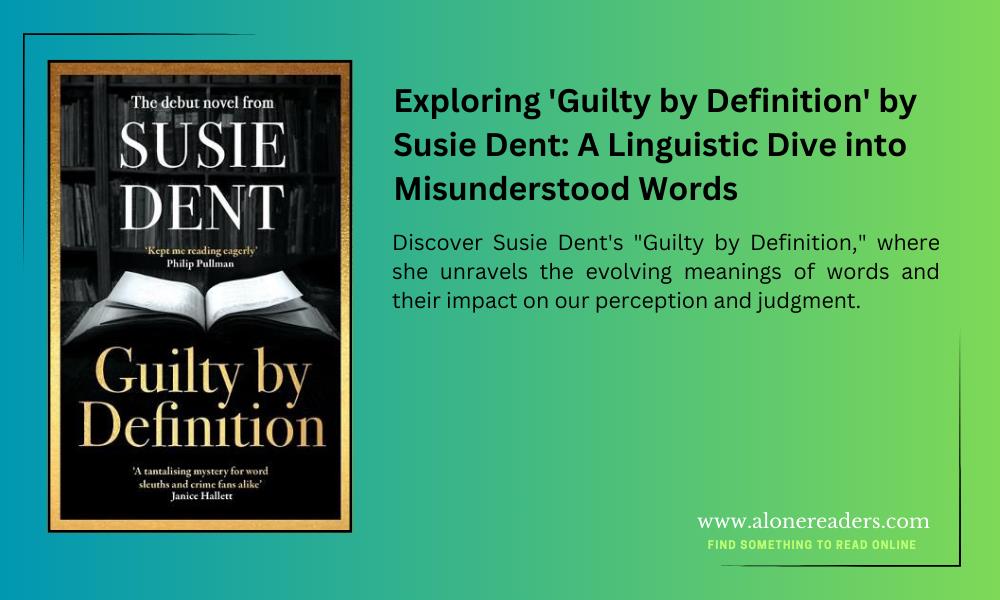
Susie Dent's "Guilty by Definition" is a compelling exploration of the power and evolution of language. Known for her work as a lexicographer and her regular appearances on British television, Dent brings her deep understanding of words to this book, offering readers a unique perspective on how language shapes our thoughts, actions, and even our sense of justice.
In "Guilty by Definition," Dent examines the way words are often misunderstood, misused, or misinterpreted, and how these misunderstandings can have significant consequences. She delves into the history and etymology of various words, tracing how their meanings have shifted over time and how these changes reflect broader societal shifts. Dent's writing is both informative and engaging, making complex linguistic concepts accessible to a broad audience.
One of the most striking aspects of the book is how Dent highlights the way certain words carry moral weight. Words like "guilty," "innocent," and "justice" are dissected to reveal their underlying connotations and the subtle ways in which they can influence our judgments. Dent argues that our understanding of these words is not static but is shaped by cultural, legal, and social changes. Through this lens, "Guilty by Definition" becomes more than just a linguistic study; it is a commentary on how language can be wielded as a tool of power.
Dent's exploration of the word "guilty" is particularly poignant. She traces its origins back to the Old English "gyltig," meaning "deserving of punishment," and discusses how its meaning has expanded to encompass a range of moral and legal implications. Dent's analysis is not limited to English; she draws comparisons with other languages, illustrating how different cultures interpret the concept of guilt and how these interpretations shape their legal systems.
The book also touches on the modern-day implications of these linguistic shifts. Dent discusses how the media and politicians use language to frame narratives, often simplifying complex issues into binary oppositions of guilt and innocence. She argues that this reductionist approach can lead to a distorted understanding of justice and urges readers to be more critical of the language used in public discourse.
Dent's style is both scholarly and accessible. She writes with the authority of a seasoned lexicographer but with the warmth and wit that her fans have come to expect. Her ability to weave historical analysis with contemporary examples makes "Guilty by Definition" a book that is both thought-provoking and relevant.
However, the book is not without its limitations. Some readers might find Dent's focus on certain words to be too narrow, and there are moments where the analysis feels somewhat repetitive. Additionally, while Dent does an excellent job of exploring the historical and cultural contexts of words, the book could have benefited from a deeper exploration of the psychological impact of language on individual and collective behavior.
Despite these minor shortcomings, "Guilty by Definition" is a valuable contribution to the field of linguistics and a must-read for anyone interested in the power of language. Dent's ability to uncover the hidden meanings and implications of words is both enlightening and unsettling, reminding us that language is not just a tool for communication but a force that shapes our world.
In conclusion, Susie Dent's "Guilty by Definition" is a fascinating exploration of how words evolve and the profound impact they can have on our perceptions and judgments. It is a book that encourages readers to think critically about the language they use and encounter in their daily lives, making it a timely and important read in today's world. Whether you are a linguistics enthusiast or simply curious about the power of words, "Guilty by Definition" offers insights that will leave you pondering long after you have turned the last page.